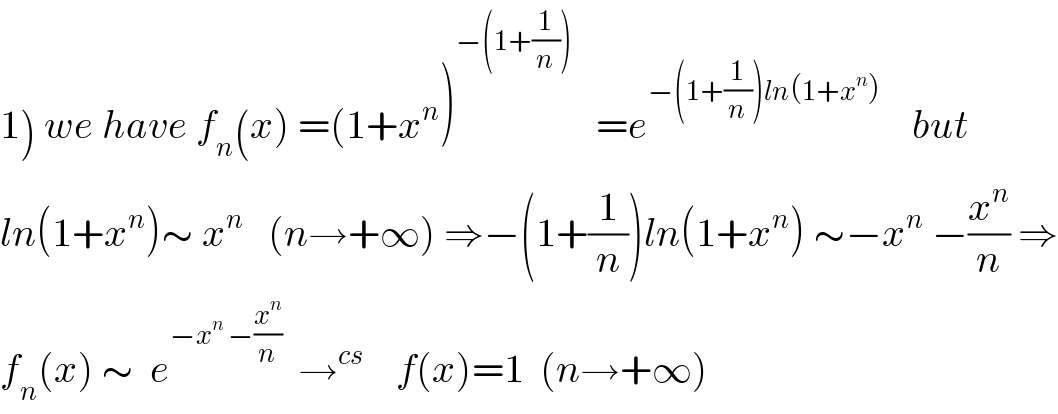
Question and Answers Forum
Question Number 40150 by maxmathsup by imad last updated on 16/Jul/18
![let f_n (x) =(1/((1+x^n )^(1+(1/n)) )) ddfined on [0,1] 1) prove that f_n →^(cs) f (n→+∞) 2) calculate I_n = ∫_0 ^1 f_n (x)dx](Q40150.png)
Commented by maxmathsup by imad last updated on 21/Jul/18

| ||
Question and Answers Forum | ||
Question Number 40150 by maxmathsup by imad last updated on 16/Jul/18 | ||
![let f_n (x) =(1/((1+x^n )^(1+(1/n)) )) ddfined on [0,1] 1) prove that f_n →^(cs) f (n→+∞) 2) calculate I_n = ∫_0 ^1 f_n (x)dx](Q40150.png) | ||
Commented by maxmathsup by imad last updated on 21/Jul/18 | ||
 | ||